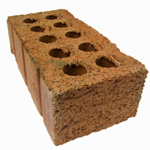
In my vain imaginings, I picture Moses writing Genesis, the beginning of his writings, just after the golden calf incident in Exodus 32. Israel built an image of their ‘god’, but it wasn’t the right God. What they needed at that point was a theology lesson. They needed to know who their God was and where they’d come from. Their God wasn’t anything like the gods of Egypt (where just they’d spent their entire lives) and he wasn’t anything like the gods of Canaan (where they were headed). They also needed to understand why God brought them out of Egypt and was leading them to Canaan. That meant that they needed to understand Abraham. They needed this theology lesson in a pure form, not mixed with the Egyptian or Canaanite myths. So under the inspiration of the Holy Spirit, Moses began to write.
I have really no way of proving this time line, it is theory and conjecture. It could have been that Moses wrote Genesis long after Mount Sinai or even before it. This just seems right to me. A clues that I might be on to something is the story of Babel in Genesis 11. Moses rushes pretty quickly from creation to Abraham so all of the stories and genealogies in the first 11 chapters of Genesis are important. They are the things Moses slows down enough to tell us so we should pay attention. With Babel, Moses is explaining how the nations came to have different languages and how they wound up where they were. Right in the middle of that is the building of the tower. They’re building it out of pride and arrogance; they’re refusing God’s instruction to Noah to go and repopulate the earth. Instead they’re going to stop and build a city to their own greatness.
In other words, the story of Babel is about rebellion against God. And one of the things that humanity decides to do together is make bricks. “Come, let us make bricks, and burn them thoroughly.” (Gen. 11:3) So? What’s the big deal? Well, making bricks is what Israel had been forced to do in Egypt as slaves (Ex. 5). The Pharaohs wanted to “make a name for ourselves” but they’re going to do it on the backs of the Hebrews who were celebrated when they arrived in Egypt 400 years earlier. Just as God came down and knocked over the tower at Babel and confused their languages, so he came down and judged the Egyptians and their gods and drowned the lot in the Red Sea.
Am I getting too much out of that? Perhaps, heavens knows I’ve done that kind of thing before. This isn’t a concept I’m willing to fight to defend but I do have to note that though Moses is pressing pretty quickly to get to Abraham, oddly enough he mentions the bricks twice:
And they said to one another, “Come, let us make bricks, and burn them thoroughly.” And they had brick for stone, and bitumen for mortar.
Genesis 11:3
The fact that Moses repeats it, I think, is significant. In Hebrew, the word is there three times.1The two explicit mentions and the verb “to make” is built on the same root. It catches your attention. Especially if Moses is writing soon after the departure from Egypt.
The real question is how this affects us. Or is the significance of this text stranded in the Ancient Near East? No, I think there is a lesson here. What comes to mind first is a warning against pride. God didn’t tolerate it at Babel, he didn’t tolerate it in Egypt, he didn’t tolerate it in Alexander the Great or Rome, he certainly won’t tolerate it in America or China or Brazil. The sting of the message for our country is even sharper since we built our economic greatness on the back of black African slaves. You can see why the exodus is such a powerful Biblical metaphor in Black Liberation Theology.
Another lesson I think this teaches us is to remember our place in the story. Deliverance from oppression for God’s people is something he has repeatedly done and there is no reason to think he will stop. As the church is oppressed either by governments who exceed their proper roles or by the sin that so easily entangles, God is jealous to deliver. Jesus has conquered these things and will one day to judge them and rule over them, shattering them with an iron rod.
So whether we’re making bricks for our own greatness or if we’re being forced to make them to show someone else’s greatness, God is not impressed and will not sit idly by.
| ↩1 | The two explicit mentions and the verb “to make” is built on the same root. |
|---|


2 Comments
Good post, thanks.
Bricks also make great blunt instruments to strike oneself about the head with while making high fun at Christmas parties! MY BRAIN HURTS!!!!